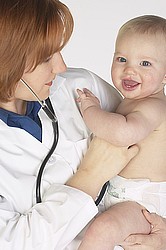
Some of the most sought after information on the Internet is that on vaccines. We have links to the most accurate and up to date sites. Remember, when you are looking for information, some of it is "dated" material. Here is a link to the government site that reflects current thinking. What Parents Need to Know
For a schedule of immunizations with age, go to these Center for Disease Control (CDC) websites:
Vaccine Information Statements otherwise known as VIS sheets are listed on this webpage and are updated by the Center for Disease control and Prevention (CDC). Click on the individual vaccine to read the latest information. Vaccine Immunization Sheets
VACCINATIONS
The American Academy of Pediatrics (AAP) recommends certain vaccines for children and teens. Although many parents may hear disparaging comments about childhood vaccines, we remind you that the benefits of the immunizations greatly outweigh the risks of the vaccines themselves. Please talk to us about your concerns. We can help you make the best choice for your child about vaccine administration.
Hepatitis B (Hep B) is an injectable vaccine given in a three dose series at: 2 months, 4 months and, lastly no earlier than 6 months of age.
Rotavirus is a serious diarreal disease of the newborn. Currently we use Rotarix which is given at 2 months and 4 months of age.
DTaP is a vaccine for Diphtheria, Tetanus and Pertussis. This injection is given at 2, 4, and 6 months of age. Then DTaP boosters are given between 15-18 months, and between 4-6 years of age.
H. influenzae (HIB) vaccine is an injection given at 2, 4 and 6 months of age with boosters at 15-18 months.
Pneumococcal (Prevnar-13) vaccine is an injection given at 2, 4, 6 and 12 months of age.
Inactivate Polio virus vaccine is available only as an injection. The current recommendation is to give the injectable vaccine at 2 months, 4 months and a third between 15-18 months. A last booster is given between 4 and 6 years of age.
The influenza (flu) vaccine is injectable and given to babies from 6-36 months of age. If it is the first time in the infant’s life to receive this vaccine, the infant has a second dose to be administered in one month. The current flu vaccine contains protection for Swine Flu (H1N1).
If it is a child's 2nd year receiving the flu vaccine, only one yearly dose is necessary. Children aged less than 9 years old who receive the flu vaccine for the first time should receive 2 doses, at least one month apart.
Please Note: Each flu season we make the vaccine available for other family members at a cost of $25. Aunts, uncles, grandparents, and friends are able to protect themselves. Newborn infants (under 6 months of age) cannot receive the vaccine, but can be exposed to family members who can bring the virus home to them.
Measles, Mumps and Rubella (MMR) is an injectable vaccine given at 1 year of age. A booster dose is required after 4 years of age before the child enters kindergarten.
In July 1995, the AAP recommended the universal use of the Varicella vaccine to prevent Chickenpox. This injectable vaccine is available to any child over the age of 1 year who has not had the chickenpox. A second dose of Varicella is recommended after 4 years of age.
Hepatitis A (Hep A) is an injectable vaccine given after 1 year of age.
Meningococcal (MPSV4) this vaccine is given to children 2 years of age or older who are immuno-compromised or have sickle cell disease or functional/anatomic aspleenia. Note: This vaccine is not given to all children.
RECOMMENDED IMMUNIZATIONS FOR CHILDREN OVER 7 YEARS
Tdap (Adacel) is an injection of Tetanus, Diphtheria and Pertussis. It is given 5 years after they received their DTaP injections. This is usually around 11 years of age. Some form of Tetanus booster is recommended every 10 years and is now mandated for all 7th grade and older children. Read about Tdap.
Meningococcal (MCV4) [Menactra], is a one time injectable vaccine given at 11 years of age.
Human Papillomavirus (HPV) is recommended to be administered to girls between the ages of 11 and 26 years of age, although some exceptions are made and girls as young as 9 years old may receive the vaccine. We use Cervarix, a 3 dose injectable series which gives superior protection to women against cervical cancers. Note: Even with the vaccine, women still need cervical cancer screenings because this vaccine does not prevent all HPV types.